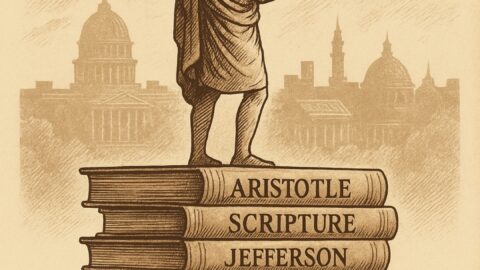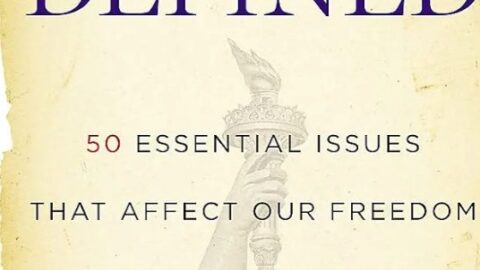The quote by Albert Einstein—”Blind obedience to authority is the greatest enemy of the truth”—highlights the dangers of unquestioningly following those in power, which can lead to the suppression of independent thought, creativity, and the pursuit of truth. This concern resonates strongly with critiques of modern educational systems, particularly when they prioritize conformity over critical thinking. Here’s an in-depth exploration of how public education, sometimes framed as an indoctrination or propaganda system, might foster blind obedience under the guise of education:
The Shift from Education to Indoctrination
Education should ideally aim to empower individuals with the tools to think critically, question assumptions, and seek truth. However, when the system emphasizes obedience, compliance, and rote memorization over independent thought, it veers into indoctrination.
Key Characteristics of Indoctrination in Education:
- Conformity Over Creativity: Standardized testing, rigid curricula, and bureaucratic oversight often prioritize conformity over fostering unique perspectives or creativity.
- One-Sided Narratives: Curriculum content may present a single, sanitized version of history, science, or societal norms, discouraging students from exploring alternative viewpoints.
- Suppressing Dissent: Students who challenge the status quo may face ridicule, lower grades, or disciplinary actions, discouraging them from speaking up.
Centralized Control and Curriculum
In many public education systems, the curriculum is determined by centralized authorities, often influenced by political or ideological agendas.
Concerns:
- Political Influence: Decisions about what to include (or exclude) in textbooks can reflect the biases of those in power, shaping young minds to align with specific ideologies.
- Erosion of Local Autonomy: Communities and parents often have limited input into what their children are taught, reducing diversity in thought and perspective.
- Limited Scope of Knowledge: Certain controversial topics—philosophy, ethics, or alternative worldviews—may be excluded to avoid challenging dominant narratives.
The Role of Authority Figures
Teachers, administrators, and educational leaders hold significant authority in the classroom, and their role can either encourage critical thought or reinforce blind obedience.
Potential Issues:
- Fear of Questioning: Students may be discouraged from questioning authority figures, leading to a culture where deference to authority is valued over intellectual exploration.
- Bias in Teaching: Teachers may unintentionally (or intentionally) impart their personal biases, shaping students’ worldviews without encouraging them to form their own conclusions.
- Overemphasis on Rules: Strict disciplinary policies can stifle curiosity and dissent, prioritizing obedience over intellectual engagement.
Methods of Propaganda in Education
Propaganda techniques can subtly influence the educational experience, shaping students’ beliefs without their conscious awareness.
Examples:
- Selective History: Presenting a glorified version of national history while omitting uncomfortable truths.
- Language Manipulation: Using emotionally charged language to frame certain ideologies or movements in a positive or negative light.
- Repetition: Repeating certain ideas or slogans until they are accepted without question, regardless of their validity.
Suppression of Critical Thinking
One of the most damaging effects of blind obedience in education is the suppression of critical thinking skills, which are essential for discerning truth from falsehood.
Contributing Factors:
- Standardized Testing Culture: Emphasis on standardized tests rewards memorization and regurgitation rather than critical analysis or problem-solving.
- Overloaded Curricula: Students are often inundated with information, leaving little room for in-depth exploration or reflection.
- Fear of Failure: High stakes tied to grades and performance can discourage students from taking intellectual risks or challenging prevailing ideas.
Consequences of Blind Obedience in Education
Blind obedience cultivated through education has far-reaching consequences for individuals and society as a whole.
Individual Consequences:
- Loss of Individuality: Students may suppress their unique thoughts and identities to fit into the mold created by the system.
- Intellectual Passivity: Graduates may lack the ability to critically evaluate information, making them more susceptible to manipulation in adulthood.
Societal Consequences:
- Erosion of Democracy: A population conditioned to follow authority without question is less likely to hold leaders accountable or demand transparency.
- Cultural Stagnation: Without dissent and debate, societies risk becoming intellectually stagnant, unable to innovate or adapt.
Solutions: Encouraging Critical Thinking and Truth-Seeking
To counteract the dangers of blind obedience, education must prioritize the development of independent thought and intellectual curiosity.
Key Strategies:
- Promote Critical Thinking: Incorporate philosophy, ethics, and debate into the curriculum to teach students how to evaluate arguments and discern truth.
- Encourage Questioning: Create a classroom culture where questioning authority is not only allowed but encouraged.
- Diverse Perspectives: Ensure that students are exposed to a variety of viewpoints, including those that challenge mainstream narratives.
- Empower Teachers: Give educators the freedom to adapt their teaching methods to foster deeper learning and engagement.
- Parental Involvement: Encourage parents to take an active role in their children’s education to provide additional perspectives and guidance.
Final Reflection
Blind obedience to authority in education undermines the pursuit of truth and the development of independent thought. By recognizing and addressing these issues, we can create an education system that empowers individuals to think critically, question authority, and seek truth in a world that often rewards conformity. As Einstein’s quote reminds us, true progress depends on our ability to challenge the status quo and refuse to accept unquestioned authority.







